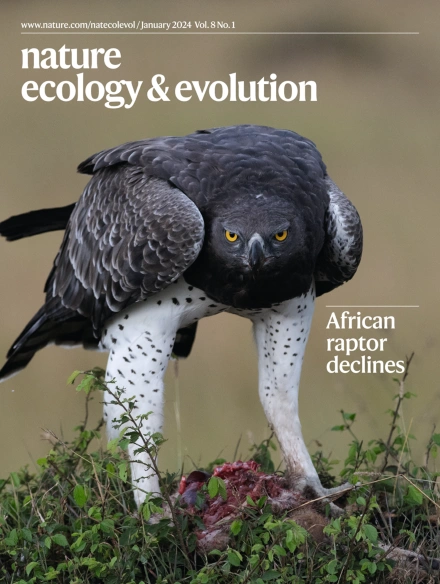印度的农业生态学项目“零预算自然农业”在不降低产量的情况下提供了生物多样性和经济效益。
IF 13.9
1区 生物学
Q1 ECOLOGY
引用次数: 0
摘要
《全球生物多样性框架》促进农业生态耕作方法1,但迫切需要对农业生态计划进行严格的全系统评估,以平衡相互交织但部分相互竞争的可持续发展目标,即遏制粮食不安全、改善人类福祉和应对生物多样性丧失。在这里,我们重点关注全球最大的农业生态转型——印度政府激励的64,000平方公里零预算自然农业(ZBNF)计划,共同分析社会经济和生物多样性的影响。ZBNF使农民的经济利润增加了一倍以上,并保持了相当的作物产量。鸟类生物多样性结果有所改善,鸟类物种密度和参与害虫防治和种子传播的功能行业增加;然而,天然林对于维持森林特有物种的数量仍然至关重要。鸟类密度与景观规模产量和利润之间的权衡在ZBNF中远不如传统的农用化学品农业系统明显,这突出了农业生态干预与自然生态系统保护相一致的好处。本文章由计算机程序翻译,如有差异,请以英文原文为准。
India's agroecology programme, 'Zero Budget Natural Farming', delivers biodiversity and economic benefits without lowering yields.
The Global Biodiversity Framework promotes agroecological farming approaches1, yet rigorous system-wide evaluations of agroecological programmes are urgently needed to balance the intertwined but partially competing Sustainable Development Goals of curbing food insecurity, improving human well-being and tackling biodiversity loss. Here we focus on the largest agroecological transition globally-the 64,000 km2 government-incentivized zero budget natural farming (ZBNF) programme in India-to co-analyse socio-economic and biodiversity impacts. ZBNF more than doubled farmers' economic profits and maintained comparable crop yields. Bird biodiversity outcomes were improved, with the densities of bird species and functional guilds involved in pest control and seed dispersal increasing; however, natural forests remain essential to sustaining populations of forest-specialized species. Trade-offs between bird densities and landscape-scale yields and profit were substantially less pronounced in ZBNF than in conventional, agrichemical-based farming systems, underscoring the benefits of agroecological interventions with aligned protection of natural ecosystems.
求助全文
通过发布文献求助,成功后即可免费获取论文全文。
去求助
来源期刊

Nature ecology & evolution
Agricultural and Biological Sciences-Ecology, Evolution, Behavior and Systematics
CiteScore
22.20
自引率
2.40%
发文量
282
期刊介绍:
Nature Ecology & Evolution is interested in the full spectrum of ecological and evolutionary biology, encompassing approaches at the molecular, organismal, population, community and ecosystem levels, as well as relevant parts of the social sciences. Nature Ecology & Evolution provides a place where all researchers and policymakers interested in all aspects of life's diversity can come together to learn about the most accomplished and significant advances in the field and to discuss topical issues. An online-only monthly journal, our broad scope ensures that the research published reaches the widest possible audience of scientists.
 求助内容:
求助内容: 应助结果提醒方式:
应助结果提醒方式:


